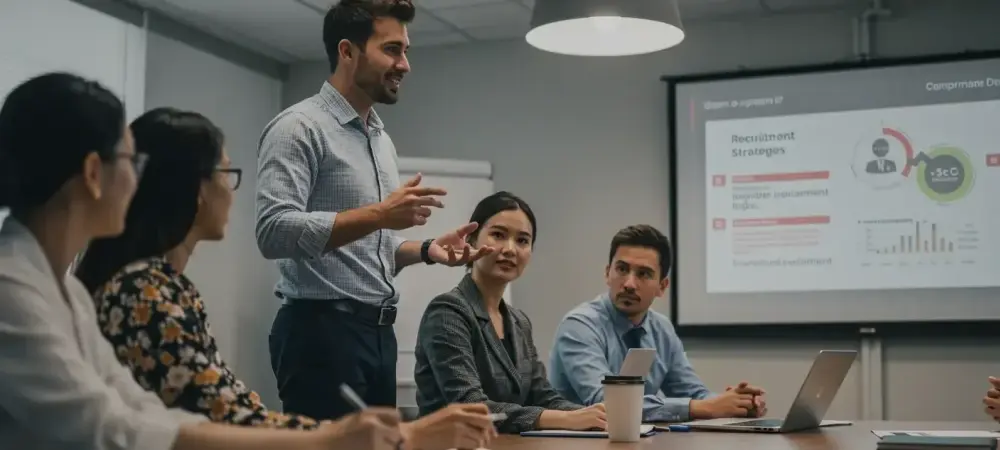In the dynamic world of recruitment, organizations face the challenge of developing onboarding processes that effectively engage newer generational cohorts like Generation Z. TalentLMS and BambooHR recently highlighted that almost 40% of new hires encounter uncertainties during the onboarding phase. While these uncertainties can affect any generation, they are particularly prevalent among Gen Z, who often find themselves overwhelmed by the extensive flow of information at the beginning of their employment journey. An imbalance in onboarding processes often favors administrative tasks over preparing employees for their professional roles, which can lead to frustration. Survey data reveals that roughly 23% of employees feel skill-building is inadequate due to limited personalized learning opportunities. Despite this, approximately 73% express a degree of satisfaction with their onboarding experiences, suggesting a mix of positive and negative outcomes that can be further refined for optimal engagement.
Balancing Administrative Tasks with Personalized Learning
A significant factor contributing to doubts among new hires is the approach taken during the onboarding process, which often leans heavily towards administrative duties instead of skill-building activities. Focusing excessively on paperwork can leave employees feeling underprepared for actual job responsibilities. To address this concern, organizations should prioritize personalized skill development that aligns with individual roles and aspirations. This approach not only enhances job readiness but also fosters a sense of belonging. The lack of personalized learning opportunities is an area ripe for improvement; more than one-fifth of employees report insufficient training that caters to their specific needs. The use of technological advancements such as AI-driven training programs can complement traditional methods, offering tailored learning paths that resonate well with a tech-savvy generation. Striking a balance between administrative efficiency and skill enhancement is essential for onboarding strategies that meet the needs of Generation Z.
The Role of AI and Hybrid Models in Onboarding
As organizations experiment with integrating AI into onboarding processes, an unexpected challenge has emerged: a remarkable 60% of employees report receiving no AI training, highlighting a crucial gap. AI can enhance onboarding by offering data-driven insights and personalized instruction, catering more closely to Gen Z’s digital proficiency. As significant dissatisfaction is found specifically among remote employees, hybrid onboarding, combining in-person and digital elements, is most promising for effective engagement. With 75% expressing satisfaction with hybrid models, HR professionals should emphasize AI training while crafting inclusive strategies that bridge geographical and cultural boundaries. Viewing onboarding as the start of a continuous learning journey encourages long-term engagement, particularly important for building relationships with Gen Z employees, who often crave connectivity. Creating cohorts of new hires facilitates integration into the corporate culture, addressing Gen Z’s preference for community and collaboration. These measures, aligning tech-savvy methods with human-centered approaches, can transform onboarding into a holistic experience.
Long-term Engagement and Organizational Integration
Experts focus on the significance of evolving onboarding practices to incorporate respectful integration and location preferences, urging leaders to consider the long-term journey of new employees beyond initial training. A study from the Journal of General Management emphasizes the need for engaging strategies that view onboarding as a starting point for a lasting organizational relationship. Cohorts can play a critical role in improving retention rates by fostering early connections within the company, particularly among Gen Z. Policymakers and HR professionals must aim for meaningful integration processes that respect geographic and cultural nuances. By refining onboarding to include ongoing development, organizations have an opportunity to match Generation Z’s expectations and ambitions with the company’s mission and goals. Revising onboarding strategies with these insights can pave the way for a more inclusive and satisfying workplace experience. Successful integration of new hires ensures not only immediate satisfaction but also contributes positively to their long-term professional trajectory.
Transformative Approaches for Future Success
A common challenge for new employees is rooted in the onboarding process, which often prioritizes administrative tasks over building essential skills. This overemphasis on paperwork can lead to feelings of unpreparedness regarding their actual job duties. To combat this issue, companies should focus on personalized skill development tailored to each role and individual aspirations. This strategy not only boosts job preparedness but also creates a sense of belonging and engagement among employees. Many workers indicate dissatisfaction with the lack of training that addresses their unique needs, highlighting a critical area for improvement. By integrating advanced technology like AI-driven training programs, organizations can complement traditional learning methods. These tech-based platforms can craft personalized learning experiences, which are especially appealing to the tech-savvy Generation Z. Achieving the right mix between administrative work and skill enhancement is crucial for onboarding strategies that effectively fulfill the requirements of modern workers.

